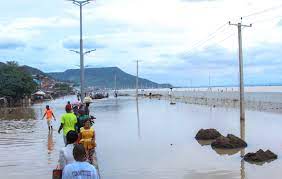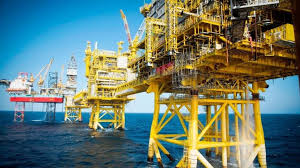Concerns are raised about whether Africa’s largest economy can meet increased local and international demands during an energy crisis brought on by Russia’s war in Ukraine after a major Nigerian energy company claims it is unable to deliver natural gas as promised in its contracts after deadly flooding hampered its operations.
After floods caused a “severe disruption of gas supply,” Nigeria LNG Limited, or NLNG, issued a “force majeure” this week, meaning it is unable to meet its contractual obligations to deliver the fuel needed all over the world to generate energy, heat homes, and run factories. According to Rystad Energy, this could have a 3.8% worldwide monthly supply impact and increase prices.
NLNG’s plant is “still in operation though at a limited capacity, due to reduced gas supply from some of its upstream gas sources,” according to Andy Odeh, spokesman for the business, on Thursday. He stated in a statement that the corporation is “working with all important stakeholders on limiting the impact on product deliveries” without going into further detail regarding exports.
The largest shareholder in the NLNG joint venture is the Nigerian government, which also includes major energy companies including Shell of London and Eni of Italy. The largest gas company in Nigeria, with a capacity to produce nearly 20 million tons of liquefied natural gas (LNG) annually, had a production capacity of 68% due to the nation’s ongoing problems with pipeline and oil theft.
Nigeria and other African nations have decided to work together to assist satisfy the European Union’s need for a higher gas supply as Europe struggles with an energy crisis as a result of Russia dramatically cutting natural gas exports during the war in Ukraine. Nigeria has the greatest natural gas reserves in Africa, but its ability to meet such needs has been questioned, even as gas prices have recently decreased and European storage levels have managed to reach 92% ahead of the winter heating season.
The greatest flooding in ten years has killed over 600 people, forced 1.3 million people from their homes, and “aggravated what was already a catastrophic position” for the national gas utility, according to Nigerian energy consultant Toyin Akinosho.
Many riverbank settlements in the oil-rich Niger Delta region, where Nigeria’s crude oil facilities are situated, have also been flooded by floodwaters, endangering the operations of both domestic and foreign oil corporations. Nigeria contributes crude to the global market as a member of the OPEC oil cartel.
Akinosho questioned whether the disruption could be resolved quickly enough for Nigeria to start supplying gas to the EU, which receives 14% of its LNG from the African nation, as well as other customers in North America, the Middle East, and Asia.
Analysts worry that if the gas supply disruption continues, it may result in a further reduction in government revenue at a time when Nigeria is already experiencing a cash shortage due to declining petroleum production over time.
Before winter, when it faces higher gas demand, the force majeure might “lead the NLNG markets to tighten further,” according to Olufola Wusu, an oil and gas specialist who was a member of the team that reviewed Nigeria’s national gas policy.
“The likelihood is very low that we will have enough gas to export if we are unable to meet local demand. Additionally, it could push some of our customers to look for LNG from different sources, according to Wusu.





















